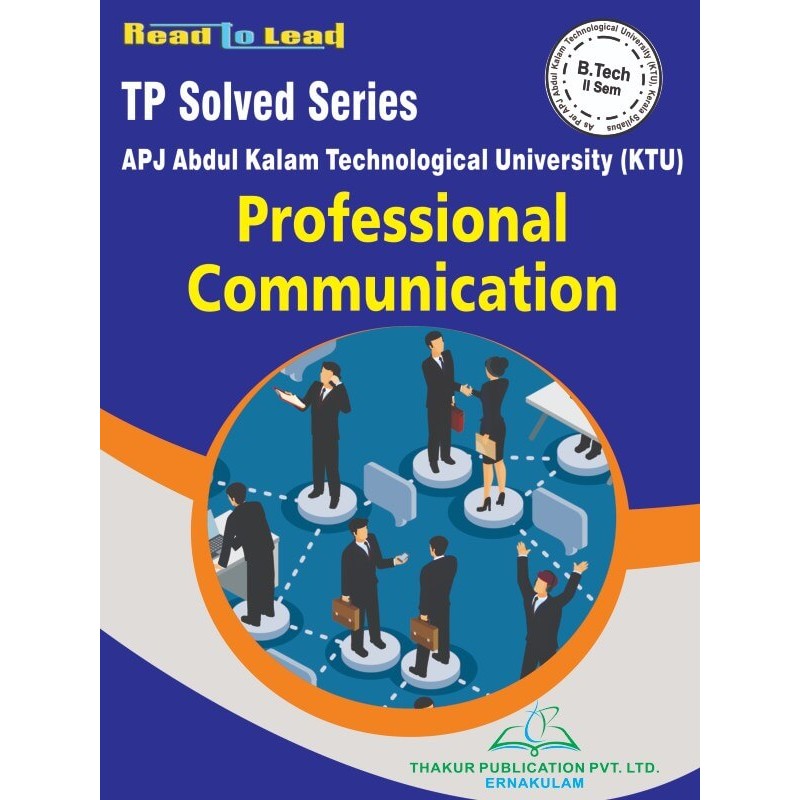




TP.Series
SYLLABUS
(HUN 102)PROFESSIONAL COMMUNICATION
Module 1
Use of Language in Communication
Significance of technical communication Vocabulary Development: technical vocabulary, vocabulary used in formal letters/emails and reports, sequence words, misspelled words, compound words, finding suitable synonyms, paraphrasing, verbal analogies.
Language Development
subject-verb agreement, personal passive voice, numerical adjectives, embedded sentences, clauses, conditionals, reported speech, active/ passive voice. Technology-based communication: Effective email messages, slide presentations, editing skills using software. Modern day research and study skills: search engines, repositories, forums such as Git Hub, Stack Exchange, OSS communities (MOOC, SWAYAM, NPTEL), and Quora; Plagiarism
Module 2
Reading, Comprehension, and Summarizing:
Reading styles, speed, valuation, critical reading, reading and comprehending shorter and longer technical articles from journals, newspapers, identifying the various transitions in a text, SQ3R method, PQRST method, speed reading. Comprehension: techniques, understanding textbooks, marking and underlining, Note-taking: recognizing non-verbal cues.
Module 3
Oral Presentation
Voice modulation, tone, describing a process, Presentation Skills: Oral presentation and public speaking skills, business presentations, Preparation: organizing the material, self-Introduction, introducing the topic, answering questions, individual presentation practice, presenting visuals effectively. Debate and Group Discussions: introduction to Group Discussion (GD), differences between GD and debate; participating GD, understanding GD, brainstorming the topic, questioning and clarifying, GD strategies, activities to improve GD skills.
Module 4
Listening and Interview Skills Listening
Active and Passive listening, listening: for general content, to fill up information, intensive listening, for specific information, to answer, and to understand. Developing effective listening skills, barriers to effective listening, listening to longer technical talks, listening to classroom lectures, talks on engineering /technology, listening to documentaries and making notes, TED talks. Interview Skills: types of interviews, successful interviews, interview etiquette, dress code, body language, telephone/online (skype) interviews, one-to-one interview & panel interview, FAQs related to job interviews.
Module 5
Formal Writing
Technical Writing: differences between technical and literary style. Letter Writing (formal, informal and semi formal), Job applications, Minute preparation, CV preparation (differences between Bio-Data, CV and Resume), and Reports. Elements of style, Common Errors in Writing: describing a process, use of sequence words, Statements of Purpose, Instructions, Checklists. Analytical and issue-based Essays and Report Writing: basics of report writing; Referencing Style (IEEE Format), structure of a report; types of reports, references, bibliography.
Your review appreciation cannot be sent
Report comment
Report sent
Your report cannot be sent
Write your review
Review sent
Your review cannot be sent

TP.Series
check_circle
check_circle